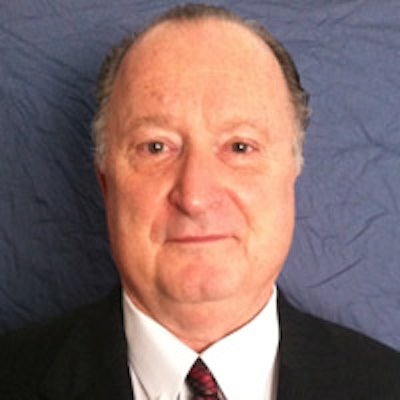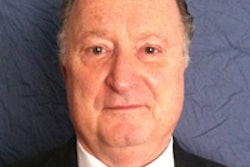
When looking at the year-end service a certified public accountant (CPA) provides to a dental client regarding financial statements, the dentist must choose between one of three kinds of accounting reviews, each a little more complex and authoritative as we move up the assurance or opinion chain.
 Thomas Climo, PhD, is a dental practice management consultant and a past professor of economics in England.
Thomas Climo, PhD, is a dental practice management consultant and a past professor of economics in England.
A compilation review represents the most basic level of service CPAs provide with respect to financial statements. No opinion on the credibility of the financial statements is provided, either in compliance with generally accepted accounting principles or other known metrics normally employed by business entities. Upon completion, a report on the financial statements is issued that states a compilation was performed in accordance with American Institute of CPAs (AICPA) professional standards, but no assurance is expressed that the statements are in conformity with generally accepted accounting principles. This is known as the expression of "no assurance."
A financial statement review requires that the CPA perform inquiry and analytical procedures in addition to the procedures described above for a compilation. Reviewed financial statements are often prepared for entities that have bank loans, outside investors, or trade creditors when those third parties do not require audited statements. Upon completion, a report is issued stating that a review has been performed in accordance with AICPA professional standards, that a review is less in scope than an audit, and that the CPA did not become aware of any material modifications that should be made in order for the statements to be in conformity with generally accepted accounting principles or, if applicable, another comprehensive basis of accounting. This is known as the expression of "limited assurance."
A financial statement audit is the CPA's highest level of assurance service. In an audit, the CPA performs all the steps indicated above and also performs verification and substantiation procedures. These verification and substantiation procedures may include direct correspondence with creditors or debtors to verify details of amounts owed, physical inspection of inventories or investment securities, inspection of minutes and contracts, and other similar steps. Also, the CPA gains an understanding of the entity's system of internal control.
When the audit is completed, the CPA's standard audit report states that an audit was performed in accordance with generally accepted auditing standards, and expresses an opinion that the financial statements fairly present the entity's financial position and results of operations. This is known as the expression of "positive assurance."
Most, if not all, solo practitioner financial statements opt for compilation reviews to the delight of their CPA business partner. By providing no opinion on the quality or credibility of the financial statements, and specifically excluding themselves as being involved in the preparation of those financial statements, the CPA has absolute no liability should the financial statement be found deficient by a bank, trade vendor, or prospective purchaser of the practice. No lawsuit can ensue against the CPA firm.
This predominance of compilation review in the dental industry means that approximately 100,000 financial statements for approximately 100,000 dental businesses are providing no independent certification as to the accuracy of the financial reporting of their dental practices.
To find certified financial statements in the field of dentistry, we must look at dental practice management companies or dental service organizations which, owing to their involvement with private equity, cannot make headway in the capital market without having financial statements certified.
The purpose of this article is not to persuade a solo practitioner to employ a public accountant to do a full-out certification audit leading to a clean or unqualified opinion on the credibility of financial statements. I've been a consultant to the dental industry long enough to know the reticence of a dentist-owner to pay for such a privileged report when the rest of the industry completely ignores the accuracy of their financial reporting.
Instead, what I propose is a reasonable and efficient system of internal audit capable of being implemented by a dentist-owner's own staff, or, the addition of an outside financial consultant to perform the activities required to lift the financial statements from "no assurance" to the "assurance" provided by a documented internal audit, including an examination of the practice's internal controls.
I have just completed an internal audit for a practice in New York. It is a two-page report consisting of 32 pages of support documentation and a one-page opinion letter. The thrust of the assurance is captured in the opinion letter that reads as follows:
I have performed an internal audit on the accompanying statement of financial position of XYZ Dental, which included the financial statements as of December 31, 2012; June 30, 2013; and August 22, 2013, and the related statements of activities and change in net assets, functional expenses, and cash flows for the year then ended in 2012 and to midyear of June 30, 2013, and as at the date of this opinion letter.
I took as my responsibility to express an opinion on these financial statements based on an examination of internal control with an assessment of a valid separation of operational duties within the organization, its cash and receivables, charts review, and other activities -- owner withdrawals, payroll, accounts payable -- made as part of my audit and its affect on the performance of XYZ Dental.
I conducted my audit in accordance with auditing standards generally accepted in the United States of America. Those standards require that I plan and perform the audit to obtain reasonable assurance about whether the financial statements are free of material misstatement. An audit includes examining, on a test basis, evidence supporting the amounts and disclosures in the financial statements. An audit also includes assessing the accounting principles used and significant estimates made by management, as well as evaluating the overall financial statement presentation. I believe that my internal audit proves a reasonable basis for the following opinion:
"In my opinion, the financial statements and attachments referred to above represent fairly, in all material respects, the financial position of XYZ Dental as of December 31, 2012, and as of June 30, 2013, and its change in net assets and its cash flow for the year or midyear then ended in conformity with the accounting principles generally accepted in the United States of America."
The entire process in New York took three days to finish, including half a day to write the report, attach my audit findings, and pen the internal audit opinion. The total cost of the internal audit was $2,250.00. After submission to the dentist-owner, the next entity to receive the report was his bank, which was funding a next acquisition.
If it is assurance you hope to generate in yourself as dentist-owner, as well as those interested in your business, for whatever reason, you might want to think of spending a couple grand each year having an internal audit performed to lend substance and credibility to your financial statements. The alternative -- hiring a public accountant to do an audit -- will cost you $25,000 to $50,000.
Thomas Climo, PhD, is a professor emeritus of accounting and finance at a major university in the U.K. He has published extensively about the importance of modern managerial and financial decision-making for dentistry. He is a consultant to corporate and solo practitioner dental practice management companies in the states of Arizona, California, Connecticut, Nevada, New Hampshire, New York, and Massachusetts. He can be reached by email at [email protected] or by telephone at 702-578-2757.
The comments and observations expressed herein do not necessarily reflect the opinions of DrBicuspid.com, nor should they be construed as an endorsement or admonishment of any particular idea, vendor, or organization.


















